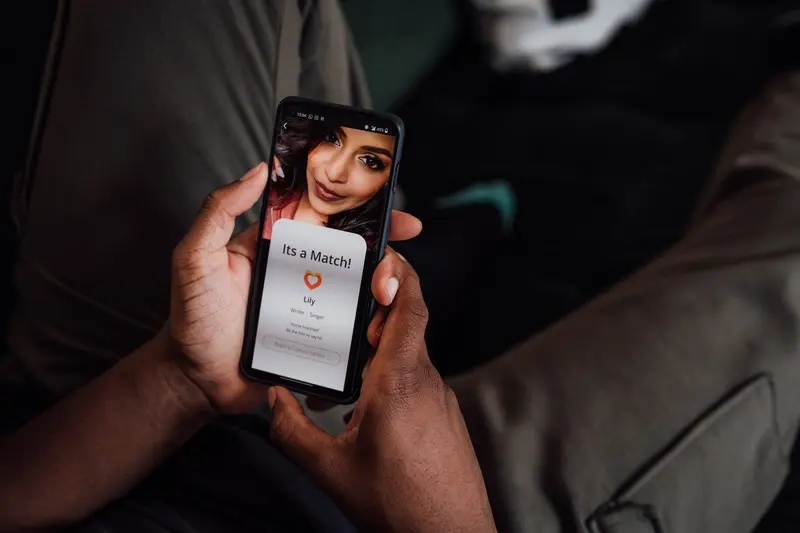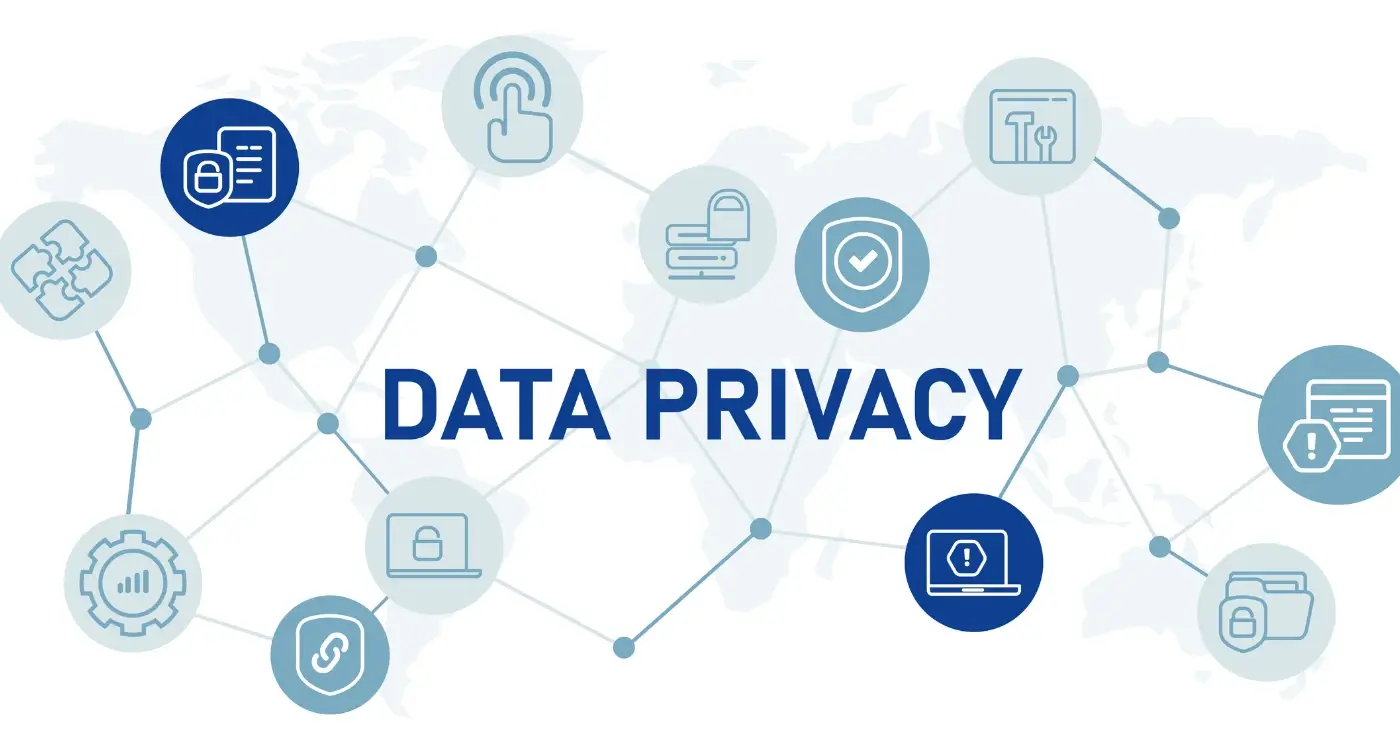What's The Difference Between Terms Of Service And Privacy Policy?
Nearly three billion people use mobile apps every single day, yet most users have no idea what they're agreeing to when they tap "Accept" on those lengthy legal documents. I've worked with countless app developers over the years, and the confusion around privacy policies and terms of service agreements is staggering—even amongst seasoned professionals who should know better!
These two documents might seem like boring legal paperwork that nobody reads, but they're actually the foundation of trust between your app and its users. Think of them as the rulebook for how your app operates and what happens to user information. Without them, you're not just risking legal trouble; you're potentially putting your entire business at risk.
The difference between a privacy policy and terms of service isn't just legal jargon—it's the difference between protecting your users and protecting your business
Here's what many people don't realise: these aren't just nice-to-have documents that you can cobble together from templates found online. They're legally binding contracts that need to be tailored specifically to your mobile app's functionality, data collection practices, and business model. Getting them wrong can result in hefty fines, app store rejections, and worst of all, a complete loss of user trust that can take years to rebuild.
What Is a Privacy Policy?
A privacy policy is a legal document that explains how your mobile app collects, uses, stores, and shares user data. Think of it as a promise to your users about what you'll do with their personal information—and what you won't do with it.
When someone downloads your app, they're trusting you with their data. This could be anything from their email address and location to their photos or contact list. The privacy policy tells them exactly what information you're collecting and why you need it.
What Should a Privacy Policy Include?
A good privacy policy covers several key areas that users need to know about:
- What personal data you collect (emails, names, location, etc.)
- How you collect this information (through forms, automatic tracking, etc.)
- Why you need the data (to improve the app, send updates, etc.)
- Who you share the data with (third-party services, advertisers, etc.)
- How long you keep the data
- How users can delete or change their data
- How you protect their information
Most app stores require you to have a privacy policy before they'll approve your app. But beyond meeting legal requirements, it's about building trust with your users—something that's become increasingly important as people become more aware of data privacy.
What Is a Terms of Service Agreement?
A Terms of Service agreement is like the rulebook for your mobile app—it sets out what users can and can't do when they use your app. Think of it as your app's legal contract with every person who downloads it. The Terms of Service (often called ToS or Terms of Use) protects your business whilst making sure users understand their responsibilities.
When someone taps "I agree" during app installation, they're legally bound by these terms. That's why getting this document right is so important for any mobile app developer or business owner.
What Should Your Terms of Service Include?
Your Terms of Service needs to cover several key areas to be effective. I've seen too many apps with weak terms that leave businesses vulnerable to legal issues down the line.
- User behaviour rules and prohibited activities
- Intellectual property rights and ownership
- Payment terms and refund policies
- Account termination procedures
- Limitation of liability clauses
- Dispute resolution methods
The document should be written in clear language that users can understand—legal jargon won't help anyone if there's a dispute. Most importantly, your Terms of Service must be easily accessible within your app, typically linked in the footer or settings menu.
Always have a lawyer review your Terms of Service before publishing your app. Generic templates might miss industry-specific requirements that could leave your business exposed.
Key Differences Between Privacy Policy and Terms of Service
After building mobile apps for the better part of a decade, I've seen countless developers get confused about these two documents—and honestly, I get why. They both sound equally boring and legal, but they serve completely different purposes for your app.
A privacy policy is all about data; it tells users what personal information you collect, how you use it, and who you might share it with. Think of it as your promise about keeping secrets. Your terms of service, on the other hand, is like a rulebook that explains how people can use your app and what happens if they break those rules.
What Each Document Covers
The privacy policy focuses on protection—protecting user data and explaining your data practices. Meanwhile, terms of service focus on behaviour and expectations between you and your users. One protects privacy, the other protects your business.
| Privacy Policy | Terms of Service |
|---|---|
| Data collection and usage | User conduct rules |
| Third-party sharing | Account termination |
| Cookie usage | Liability limitations |
| User rights | Dispute resolution |
Both documents are legally required in most places, but they protect different aspects of your app relationship with users. You can't really have one without the other—they work as a team to keep both you and your users safe.
Legal Requirements for Mobile Apps
When you're developing a mobile app, you can't just throw it on the app stores and hope for the best—there are actual legal requirements you need to follow. Both Apple's App Store and Google Play Store have strict rules about what legal documents your app must include before they'll approve it for download.
The big two that almost every app needs are a privacy policy and terms of service agreement. Apple won't even let you submit your app without a privacy policy link in your app store listing. Google Play is just as strict; they require privacy policies for apps that collect personal data, which let's be honest, most apps do these days.
Regional Laws You Can't Ignore
Then there are regional laws like GDPR in Europe and CCPA in California that add extra layers of complexity. GDPR affects any app that processes data from EU users—doesn't matter where your company is based. The fines can be massive; we're talking millions of pounds for non-compliance.
The cost of getting legal documents wrong far outweighs the investment in getting them right from the start
Children's apps face even stricter rules under COPPA in the US, which restricts how you can collect data from kids under 13. The bottom line? These aren't optional nice-to-haves—they're legal requirements that can make or break your app launch.
What Happens When You Don't Have These Documents
I've seen plenty of app developers skip the legal documentation thinking they can add it later—and trust me, that's a risky move that can come back to haunt you. Without proper Terms of Service and Privacy Policy documents, you're leaving your app vulnerable to legal trouble, user complaints, and potential removal from app stores.
The most immediate problem you'll face is app store rejection. Both Apple's App Store and Google Play Store require privacy policies for apps that collect personal data, which includes basic things like device information or user accounts. Submit your app without these documents and you'll get a rejection notice faster than you can say "launch day".
Legal and Financial Risks
Beyond app store problems, you're exposing yourself to serious legal risks. Data protection laws like GDPR in Europe can result in hefty fines—we're talking thousands or even millions of pounds depending on your user base. Without clear terms outlining user responsibilities, you'll struggle to remove problematic users or content from your platform.
- App store rejection and removal
- Regulatory fines and penalties
- User disputes with no legal framework
- Difficulty removing harmful content or users
- Loss of user trust and credibility
The bottom line? These documents aren't just legal formalities—they're your safety net. Don't launch without them.
How to Create Effective Privacy Policies and Terms of Service
Creating these legal documents doesn't have to be a nightmare—though I'll admit, it's not exactly the fun part of building a mobile app! The good news is that you don't need a law degree to get started, but you do need to be thorough and honest about what your app actually does.
Start with a privacy policy template from a reputable legal website or generator tool. These give you a solid foundation, but here's the thing—you can't just copy and paste. You need to customise it to match your app's specific features and data collection practices. If your app uses the camera, mention it. If you're collecting location data, spell that out clearly.
What to Include in Your Documents
- What data you collect and why you need it
- How you store and protect user information
- Who you share data with (if anyone)
- How users can delete their data
- Your contact information for privacy questions
- Rules about acceptable use of your app
Work with a qualified lawyer who understands mobile app law—especially if you're handling sensitive data or operating in multiple countries. The upfront cost is worth avoiding legal headaches later.
Keep your language simple and avoid legal jargon where possible. Users should understand what they're agreeing to without needing a dictionary. Review and update these documents regularly as your app evolves.
Conclusion
After working with countless mobile app clients over the years, I can tell you that getting your privacy policy and terms of service right isn't just about ticking boxes—it's about protecting your business and building trust with your users. These documents might seem like boring legal stuff, but they're actually the foundation that keeps your app running smoothly and legally.
The main thing to remember is that your privacy policy tells users what you do with their personal information, whilst your terms of service sets out the rules for using your app. They work together but serve completely different purposes. Your privacy policy builds trust by being transparent about data handling; your terms of service protects your business by setting clear boundaries.
Don't make the mistake of thinking you can skip these documents or copy someone else's. Every app is different, and the legal requirements vary depending on where your users are located and what data you collect. Take the time to create proper documents that fit your specific situation—or better yet, get professional help to make sure they're bulletproof.
Your users will thank you for being upfront about how their data is used, and you'll sleep better knowing your app is properly protected.
Share this
Subscribe To Our Learning Centre
You May Also Like
These Related Guides

What Safety Features Should My Dating App Have To Protect Users?

What Privacy Rules Apply to Location Data Collection?



